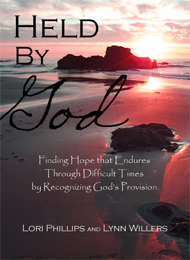 It’s Friday evening, and after a long work week, you are having dinner out. You pile the family into the car. Seat belts are fastened and the kids squabble over which restaurant to choose. After taking a poll, you settle on a family favorite and head out. You arrive at the restaurant, and place your order. While waiting for the food, you talk with your spouse about the details of the week. The sprinkler in the front yard is broken again and needs to be repaired. Your daughter mentions that she forgot to tell you that she needs to bring cupcakes on Monday. You sigh, and wonder if you will have to stop by the market on the way home. Your son regales highlights of his afternoon baseball game. The family is in the middle of conversation when the food arrives. It looks delicious. Before digging in, you collectively bow your heads. As your spouse finishes thanking God for the food in Jesus’ name, you hear a commotion and open your eyes. A hostile crowd has gathered around your family. “How dare you say that name in public! Don’t you people know that’s against the law? Someone call the police!” To angry slurs, you leave the food, grab your kids and quickly head for the nearest exit…
It’s Friday evening, and after a long work week, you are having dinner out. You pile the family into the car. Seat belts are fastened and the kids squabble over which restaurant to choose. After taking a poll, you settle on a family favorite and head out. You arrive at the restaurant, and place your order. While waiting for the food, you talk with your spouse about the details of the week. The sprinkler in the front yard is broken again and needs to be repaired. Your daughter mentions that she forgot to tell you that she needs to bring cupcakes on Monday. You sigh, and wonder if you will have to stop by the market on the way home. Your son regales highlights of his afternoon baseball game. The family is in the middle of conversation when the food arrives. It looks delicious. Before digging in, you collectively bow your heads. As your spouse finishes thanking God for the food in Jesus’ name, you hear a commotion and open your eyes. A hostile crowd has gathered around your family. “How dare you say that name in public! Don’t you people know that’s against the law? Someone call the police!” To angry slurs, you leave the food, grab your kids and quickly head for the nearest exit…
Too far-fetched? Don’t count on it. This scenario might very well be common-place in America in our future. For millions of Christians around the world, it already is. If you are a Christian, chances are you have heard of the persecuted church (also known as the global church).
The global church largely describes Christ-followers outside the West. In many of these countries, Christianity is either the minority religion or its practice is completely forbidden. Believers may be ostracized by society or abandoned by their families. They may be denied certain rights or find it difficult to obtain jobs or housing. They might suffer beatings, imprisonment, torture or even death. Over 100 million Christians worldwide face the most extreme persecution, while millions more are discriminated against and alienated (1). In some countries, it is illegal to convert to Christianity, and believers break the law just by professing their faith in Jesus Christ.
Last weekend Dr. Carl A. Moeller, the President/CEO of Open Doors, was invited to speak at my church. Open Doors is a ministry which serves the persecuted church in countries all over the world where the Gospel is not welcome. Dr. Moeller recently co-authored a book with the Senior Pastor of my church, David W. Hegg, so this week I’ve had the honor of reading The Privilege of Persecution. The book was truly eye-opening, and admittedly, not at all what I thought it would be. I found that my traditionally-held view of the “persecuted church” was largely how Pastor Hegg described it in his introduction.
At first, I approached the cause of the persecuted church as most Western believers do, from the point of view of our strength and their weakness. They were poor, and needy, and largely undertrained and under-resourced. They greatly needed us, and we felt so good about ourselves when we rode in on our Western ideas and resources to rescue them. That’s what I thought until I got on a plane and flew to meet them, in their homes, on their soil, in their churches. It didn’t take long to recognize that they had a deep and humble dependence on Christ that fueled a faith that was extraordinary. (2)
 Bingo. That was me. But what I have since learned is that the global church has a lot to teach us Westerners—about how we view God, about how we approach his throne in prayer, and about how we are supposed to be caring for the body of Christ.
Bingo. That was me. But what I have since learned is that the global church has a lot to teach us Westerners—about how we view God, about how we approach his throne in prayer, and about how we are supposed to be caring for the body of Christ.
In the US, we believers are pretty comfortable in our faith. We attend church on Sunday or Saturday night as it fits into our schedule. We enjoy awesome music and a wide variety of programs and events that keep us engaged and entertained. None of those things are wrong in of themselves, but often we let our church experience replace quality time with God. Some Christians are focused on what God can do for them, and some people equate “life going well” with being blessed by God. We can’t really relate to people who risk their lives to be followers of Christ, because we have so much…and we take so much for granted. And yet, believers in the global church have a hunger for God’s Word, a passion for prayer, and demonstrate lives of sacrificial giving when they own next to nothing. Why is that? The authors point out the reason.
When we read the parables of Jesus with fresh eyes, we see that there is never a promise of material benefit to following Jesus. Believers in the persecuted church know that truth from personal experience, and yet millions every year turn to faith in Christ in countries where it’s hardest to convert, places where there are no social or economic or political benefits to being a believer. In countries such as Pakistan and Afghanistan, the only reason people would take such a huge personal faith step is because God has revealed the truth to them, and the truth has set them free. (3)
What can the global church teach us?
 First, we learn that they have a reverence for God’s Word, and recognize it for the treasure that it is. Many Western believers are blessed to own several copies of the Bible. We have a variety of versions, and formats available to us on demand. I even have more than one copy on my iPhone! While we bask in the freedom of choice, and spend more time seeking experience over knowledge, many persecuted Christians spend hours studying and memorizing one Bible which might be shared among several families. They understand the communication that God desires to have with us through his Word and so the Bible is precious to them. In the book, the authors tell the story of a pastor in China, who had been imprisoned for twenty years. Due to his diligence in studying and memorizing Scripture as a young man, he was able to recite many passages while in prison, which strengthened and encouraged him and the other believers who were imprisoned with him.
First, we learn that they have a reverence for God’s Word, and recognize it for the treasure that it is. Many Western believers are blessed to own several copies of the Bible. We have a variety of versions, and formats available to us on demand. I even have more than one copy on my iPhone! While we bask in the freedom of choice, and spend more time seeking experience over knowledge, many persecuted Christians spend hours studying and memorizing one Bible which might be shared among several families. They understand the communication that God desires to have with us through his Word and so the Bible is precious to them. In the book, the authors tell the story of a pastor in China, who had been imprisoned for twenty years. Due to his diligence in studying and memorizing Scripture as a young man, he was able to recite many passages while in prison, which strengthened and encouraged him and the other believers who were imprisoned with him.
The persecuted church values their time of worship together, understanding that it connects them together as the body of Christ. Being less scripted and more participatory, they enjoy a certain authenticity and richness in their worship that might be missing for some in the West.
 Instead of viewing prayer as a required ritual, the persecuted church approaches prayer with humility and thankfulness. They see evil up close and personal and that perspective seems to give them a greater understanding of the power of God. It might surprise the Western church to know that our persecuted brothers and sisters are praying for us! They also pray for those who are persecuting them. If we were to focus our prayers more often on God’s glory and less often on our own comfort, our eyes might be opened to see our world through the lens of Christ rather than through the lens of our culture.
Instead of viewing prayer as a required ritual, the persecuted church approaches prayer with humility and thankfulness. They see evil up close and personal and that perspective seems to give them a greater understanding of the power of God. It might surprise the Western church to know that our persecuted brothers and sisters are praying for us! They also pray for those who are persecuting them. If we were to focus our prayers more often on God’s glory and less often on our own comfort, our eyes might be opened to see our world through the lens of Christ rather than through the lens of our culture.
Those in the persecuted church take care of one another. They are not preoccupied with “having stuff” or “getting more stuff.” For those living in uncertain circumstances on a daily basis, they recognize more often than we do, that loving God and loving people are more important than anything else. They give to one another all that they have and depend upon God daily, to supply all that they need.
The persecuted church understands the great commission, to go unto all the world and preach the Gospel. In the West, we seem to be far more concerned about fitting into the world than we are about persuading anyone else to come out of it. When we do talk about our faith, we might compromise the message in the name of “reaching people” and consequently, become completely ineffectual in reaching anyone. Christians in the West are frequently seen as hypocritical because we profess our allegiance to God, and then run after what the world offers. If we let our culture define our message, we run the risk of becoming just like the lukewarm church of Laodicea—and we all remember how God felt about them! It wasn’t a pretty picture. We are to magnify the glory of God and to share the Gospel message with all who are willing to listen.
Finally in the area of stewardship, we learn that those in the persecuted church consider it an honor to give of their meager resources, not an obligation.
Will we experience persecution here in West? Probably at some point, all of us will be challenged because of our faith. The Bible tells us to expect it if we align ourselves with Christ.
In fact, everyone who wants to live a godly life in Christ Jesus will be persecuted… (2 Tim 3:12, NIV)
If we know that we will face resistance, then the question really becomes, will we be ready for the challenge? Can our persecuted brothers and sisters half a world away, teach us how to remain strong in Christ? Can we learn from their example, what the privilege of persecution looks like? Pastor Hegg tells us.
[We] can benefit greatly through observing the lives and wisdom of those who share our faith but not our freedom. We who are free need to understand the privilege of persecution, used in the hands of the Savior, to align our priorities and focus our ministry on the things that will matter for eternity. (4)
God is working miracles in the lives of people that he loves dearly. We can choose to make a difference by learning from and supporting the persecuted church. Prayerfully consider how you can make a difference.
 An estimated 100 million Christians worldwide suffer interrogation, arrest and even death for their faith in Christ, with millions more facing discrimination and alienation. Open Doors supports and strengthens believers in the world’s most difficult areas through Bible and Christian literature distribution, leadership training and assistance, Christian community development, prayer and presence ministry and advocacy on behalf of suffering believers. To partner with Open Doors USA, call toll free at 888-5-BIBLE-5 (888-524-2535) or go to our website at www.OpenDoorsUSA.org .
An estimated 100 million Christians worldwide suffer interrogation, arrest and even death for their faith in Christ, with millions more facing discrimination and alienation. Open Doors supports and strengthens believers in the world’s most difficult areas through Bible and Christian literature distribution, leadership training and assistance, Christian community development, prayer and presence ministry and advocacy on behalf of suffering believers. To partner with Open Doors USA, call toll free at 888-5-BIBLE-5 (888-524-2535) or go to our website at www.OpenDoorsUSA.org .
(1) Open Doors, “2011 Quick Facts Open Doors USA,” http://www.opendoorsusa.org/press/2011-QUICK-FACTS-OPEN-DOORS-USA
(2) Carl A. Moeller, David W. Hegg, The Privilege of Persecution, Moody Publishers, Chicago, IL, 2011, p. 14
(3) Ibid., 22
(4) Ibid., 15
All photographs used in this post are from the Open Doors web site and are used by permission.
I am linking up for Thought-Provoking Thursdays at SomeGirlsWebsite.com
On the journey toward Home,












{ 8 comments… read them below or add one }
Very thought-provoking and powerful! I shared this on Facebook and read it to my family. Good job!
So true! How often we take for granted the privilege to read God’s Word openly and pray openly. Some have to hide the Word for fear of death.
Yes it is a privilege! Thanks Sherry!
Thanks Lynn, Im sure you’ve had one of those experiences when He is trying to tell you something that you are too stubborn ( or in my case too dim) to accept…you know, several people want to talk about the very thing God has placed in your heart, someone you havent seen forever appears out of the blue and guess what they wanna say, then driving to work you pass a billboard on which someone has spray-painted the final straw and suddenly you realize what He is saying. So…Thank You for being God’s billboard for me.
I am honored to be your friend Harry, and will be keeping you in my prayers.
I have just finished reading this while eating lunch at work. It brought me to tears – quiet, discreet tears, but tears nontheless. For several years now I have often wondered “If I were to face true persecution how would my faith stand up. Would I joyfully endure – no, would I relish and grow under, physical, emotional, or economic persecution for my redeemer? What a humbling thought to consider. I honestly don’t know. I’d like to think that with Christ’s strength I would hold up under the pressure,but I’m not sure. What an inspiration and what role models our brothers and sister in the persecuted church are for us!
Well written Lynn! Thank you for the reminder.
Such a powerful post this is! Thank you for sharing it. We take so many things for granted, and yet I have been forced to ask myself what if I were faced with resistance? What would I really do?
Thank you for sharing this.
Blessings,
Misty
Thank you Misty and Karla for your thoughtful words. I appreciate your comments.